Medusa Gorgona: The Curse of the Gaze
Medusa Gorgona, a being whose eyes turn people into stone, tells her story, one intertwined with loneliness, fear, and a desire to be understood. She grapples with the question of her nature and the curse that defines her existence.
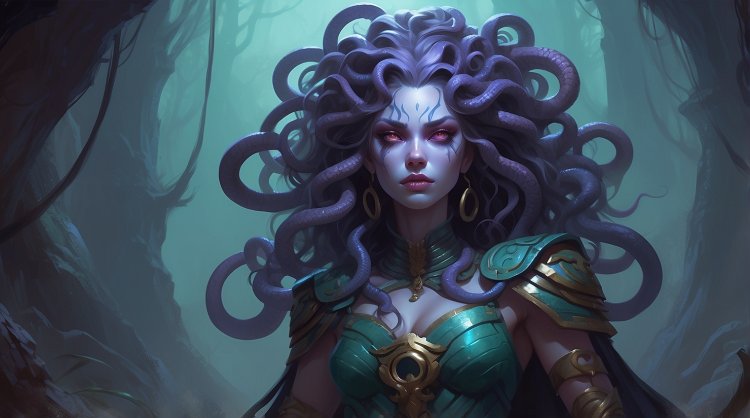
Medusa Gorgona was born in ancient times, when the world was filled with gods, heroes, and monsters. But her story was not one of victory or glory. It was a story of pain, loneliness, and a curse she carried within her. Her gaze was deadly; her eyes could turn any living creature into stone, and her hair was made of living serpents that hissed and twisted. But what she truly was, hid deeper than her outward appearance.
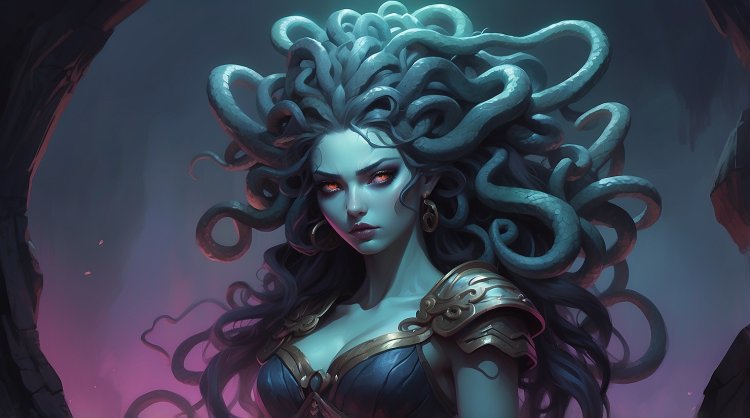
From birth, Medusa was beautiful. Her hair was thick and dark, and her eyes shone with purity and tenderness. But one day, in her youth, she caught the attention of the god Poseidon. He saw her, as he had seen many other mortal women, and drawn to her beauty, he violated her peace. But what he did not know was that Medusa was the daughter of ancient gods, and her mother, Gaia, took notice of this.
Gaia, unwilling to tolerate such a breach of order, placed a terrible curse on Medusa. She was transformed into a monster, and her outward appearance became her prison. The serpents on her head began to hiss and twist, and her eyes became capable of turning any living creature into stone. Medusa, part desperate, part a creature that could not change her nature, was banished to empty caves and distant lands to keep from causing harm to those close to her.
But Medusa was not evil by nature. She was simply an unfortunate being trapped in her own body and fate. She spent her days in solitude, avoiding any contact with the outside world because she knew that her gaze could turn any living thing into stone. And that was her curse—her gift became her heavy burden. When she last looked in a mirror, she saw a horrific monster, no longer human. She saw her fate as chains that could not be broken.
Medusa did not seek vengeance, nor did she crave destruction. She simply wanted to be understood, to be a human and not a monster. She longed for a world where she could exist without the fear of what would happen if she accidentally met someone’s gaze. But her world was closed, and every step was a step into emptiness. She often sat in dark caves, lost in her thoughts, watching as the world outside moved forward, while she remained in her dark corner, cursed.
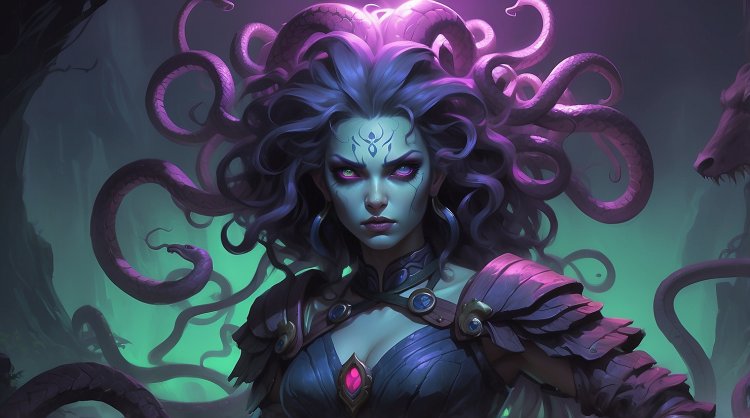
She remembered how once she tried to leave the cave, attempting to view the world from another perspective. She noticed a man who happened to be in her path. His eyes were filled with both fear and admiration. But when their gazes met, he turned to stone, and Medusa felt her heart contract in pain. She did not want to cause harm, she did not want to be this monster. But her curse left her no choice. She returned to her cave, where her hair began to hiss again, and her heart beat in sync with every sound of the dead stones left in the wake of her gaze.
Years passed, and Medusa realized that she could never change her situation. She was an eternal prisoner of her own body. But one day, in the deepest corners of her soul, she decided she no longer wanted to be this creature that only caused pain. She sought an answer, a way out. And just as she was ready to resign herself to the eternal shadow of her life, a hero appeared who, she thought, would destroy her.
Perseus, a young and brave hero, was sent by the gods to defeat Medusa. He knew that her gaze was deadly, but he did not know that behind this being lay pain and loneliness. When he approached her cave, he was ready for battle, but before him stood not just a monster, but a creature suffering from its curse. And when his gaze met hers, he did not turn to stone. He was not afraid. He understood that perhaps she needed saving, not destruction.
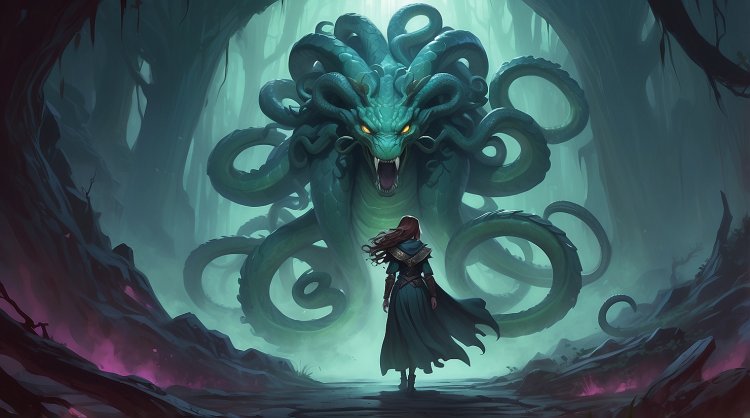
Perseus did not use his sword to kill her. He used a mirror to look at her without falling under her gaze. But at that moment, when he saw her face through the mirror, he understood that he could not destroy her. He saw in her eyes not malice, but sorrow, and his heart filled with pity. He realized that she was not an evil being. She was simply an unhappy creature that had never been understood.
Instead of killing Medusa, Perseus offered her the chance to leave to a world where her curse would no longer bind her. He offered her the chance to be herself, to be the woman she once was. And though Medusa still felt pain and fear, she felt something new—hope.
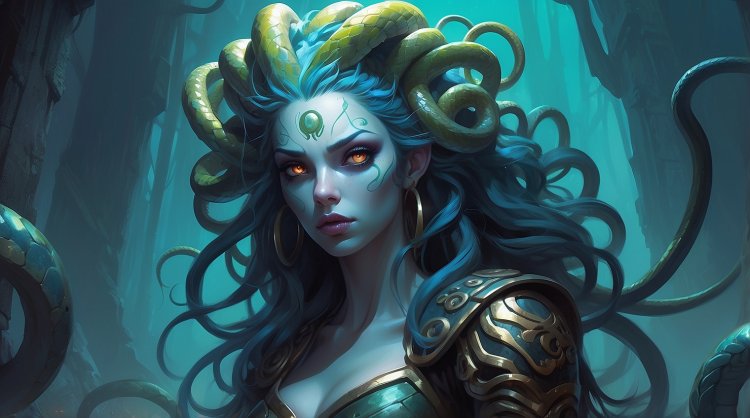
Medusa chose to abandon her vengeance. She felt that her path should not be one of destruction. She agreed to leave this world, leaving her shadow behind. She was no longer a monster, she was a woman who sought to be understood. And though her life did not end, she was no longer bound in stone.
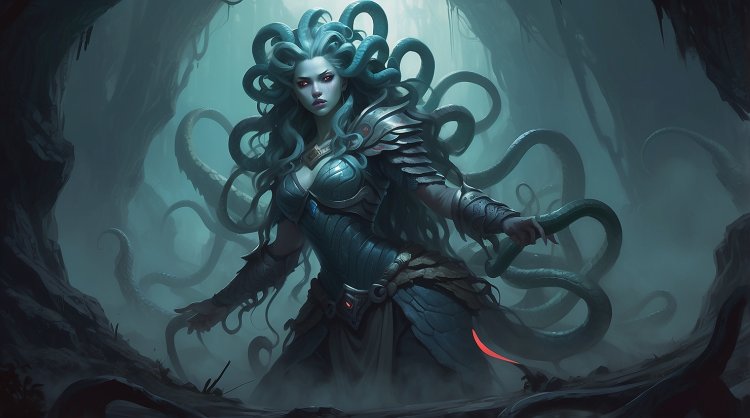
Moral: The inner world of a person or being can be much more complex than it appears at first glance. Sometimes what seems like a curse is actually a burden that can be overcome with understanding and compassion.
What's Your Reaction?




















